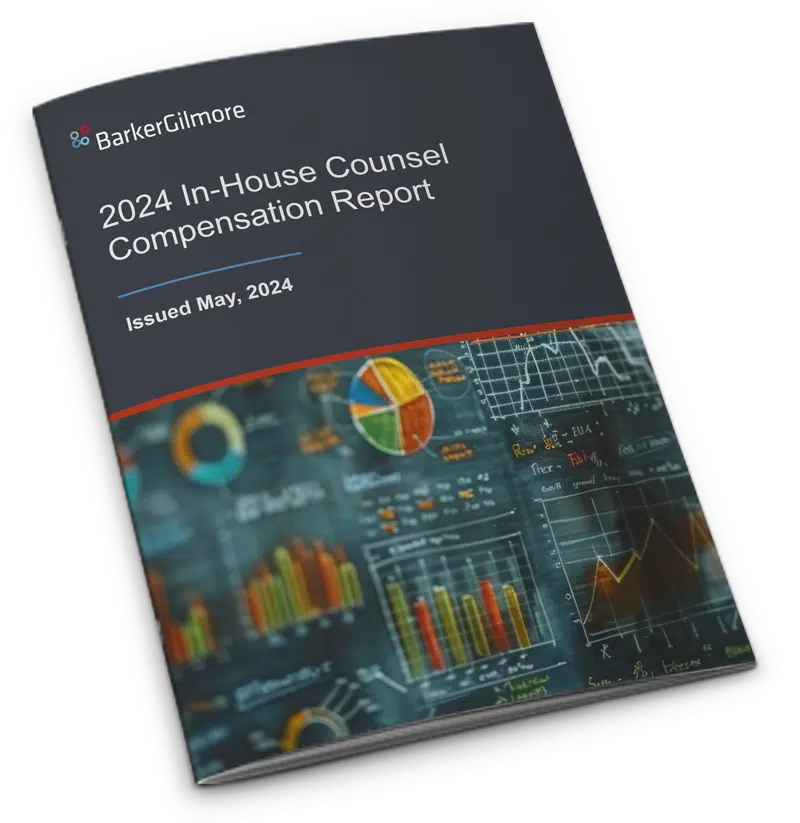As a recruiter, I’ve developed a rather messy Pavlovian response when a resume lands on my desk featuring an Ivy League law school and a major law firm.
But, the truth is, you can’t simply hire associates from white glove firms and assume they’ll be a good cultural fit for your organization. That’s because the qualities that make for a high-performing associate – exercising prudence, racking up billable hours, hardline negotiating, etc. – are not always likely to enthrall your senior leadership committee.
So how do you ensure that you’re building a legal team that is ready, willing and able to support key business goals?
For starters, it’s important to keep in mind that each industry, as well as each company, is different, so you can’t adopt a one-size-fits-all approach. For instance, if your company is in financial services, you may want your in-house team to be more risk-adverse. While if you’re in high tech, you may prefer your in-house attorneys to be more entrepreneurial and more open to pursuing business opportunities that carry some risk.
At BarkerGilmore (BG), we’ve focused on placing top-tier lawyers in compliance and in-house roles for more than a decade, so we’ve grown adept at identifying must-have (as well must-avoid) personality traits to ensure successful, long-term hires. We do this by leveraging a combination of industry-leading personality assessment tools and interview questions.
As the senior Hogan-certified member of our team, I have gone through extensive training, enabling me to create personality inventories for our candidates, reflecting the following critical attributes:
- Adjustment: confidence, self-esteem and composure under pressure
- Ambition: initiative, competitiveness and desire for leadership roles
- Sociability: extraversion, gregarious and need for social interaction
- Interpersonal sensitivity: tact, perceptiveness and ability to maintain relationships
- Prudence: self-discipline, responsibility and thoroughness
- Inquisitive: imagination, curiosity and creative potential
- Learning approach: achievement orientation, valuing education
Based on this initial assessment, my colleagues and I follow up with targeted questions that allow us to predict how well the candidate is likely to meet the rigors of an in-house placement.
Since our mission at BG is to help build world-class legal and compliance teams for Fortune 500 companies and innovative startups, I’d like to pass along some of this hard-earned wisdom to you.
Here are the top five criteria to consider when hiring in-house counsel:
- Adjustment. Let’s begin with the obvious: Nobody wants to see a lawyer who crumbles under pressure or requires hand-holding. That said, most associates work under the tight scrutiny of senior associates and partners. So it’s vital to ascertain whether they’re able to exercise sound judgment and function independently. To get at this trait, look for a high level of “adjustment” in the Hogan scale. I also ask tough interview questions to see how they handle the pressure. For example, I’ll ask them to share a professional situation where they failed in some way. For over-achievers, this is difficult to admit, let alone discuss. But having the resiliency to learn from mistakes is important in a business setting. If a candidate loses her composure in responding, this tells me that she doesn’t have the gravitas to make the transition to in-house. And if she fails to tell me what she learned from her mistake and how it informed her subsequent behavior without being prompted, I have no choice but to dismiss her from consideration.
- Service orientation. Most associates amass the majority of their billable hours on due diligence and simple drafting assignments. That means they’re unlikely to have had significant client interaction and may not have expended considerable mindshare on understanding how their work supports key business goals. In addition to looking for a balanced Hogan assessment around “ambition,” I always ask candidates to talk about the most fulfilling aspects of their current roles to see if they’ve connected the dots between their work and their clients’ goals. In addition, I ask them to talk about the challenges they’ve most enjoyed to see and if they’re more motivated by individual success or supporting the greater good of the client.
- Entrepreneurial spirit. To succeed in a business setting, a candidate must have a genuine passion for business – with a particular interest in the industry and products/services a company offers. When interviewing, it’s important to ask why the candidate is excited about the opportunity. I always ask candidates to tell me what they think about a company’s product/service to see if they’ve taken the time to research and understand what the company does – and why it matters to them. This, in addition to a high rating on the Hogan “inquisitive” scale, will let me know if this is someone who will thrive in the business setting.
- Healthy risk appetite. In law school, attorneys are trained to think about the worst case scenarios. Their academic success is tied to their ability to view a fact pattern and identify every conceivable negative outcome. This proves handy once they join law firms, where their primary objective is to provide a comprehensive risk assessment. After all, failure to do so could result in liability. And success translates into more billable hours. In a business setting, however, this work will probably get farmed out to a law firm associate. But even if the in-house team is tasked with identifying risks, they must balance this against the company’s strategic vision and growth plans if they want an amicable relationship with senior leaders. To determine whether a candidate has the ability to embrace risk, I look for a moderate reading on the “prudence” scale in Hogan. In addition, I provide relevant fact patterns to see if the candidate is able to weigh potential risks against key business goals.
- Versatility. No matter how large the legal team, in-house attorneys are likely to wear many hats. Even if they focus on a specific area, such as M&A or tax, they will probably be tasked with a variety of other assignments outside their area of interest/expertise, including vendor contract analysis, employment issues, lease agreements and so on. Since most associates have been relegated to a narrow practice area, it’s important to ensure they have the confidence and adaptability required to succeed in a broader role. In addition to looking for strong readings in the “adjustment” and “learning approach” areas of Hogan, I typically ask candidates to tell me how they would approach an issue that falls squarely outside their experience, for example a labor dispute. If they politely decline to address, I view this as a red flag. On the other end of the spectrum, if they confidently reach a conclusion without acknowledging the need to conduct further research, I find this similarly disconcerting. If they eagerly apply their analytical skills to offer a reasoned response, while conveying that they need to do further research, I know I’ve found my winning candidate.
Assessing whether a prospective candidate possesses the requisite risk appetite to succeed in an in-house role demands considerable time and, unfortunately, some degree of trial and error.
Training yourself to look beyond academic and law firm pedigree to evaluate cultural fit will, nonetheless, go a long way toward building a world-class legal team that your senior leaders will want to engage, rather than avoid.
BarkerGilmore is focused on building world class legal and compliance departments. We are best known for our ability to nationally recruit, assess and deliver top legal and compliance talent quicker and more cost effectively than any other source. I am happy to speak with you to discuss our unique search model and/or your current requirements for attorneys or compliance officers. Please let me know the best time for us to connect.
Connect with a legal recruiting advisor
* indicates required fields






